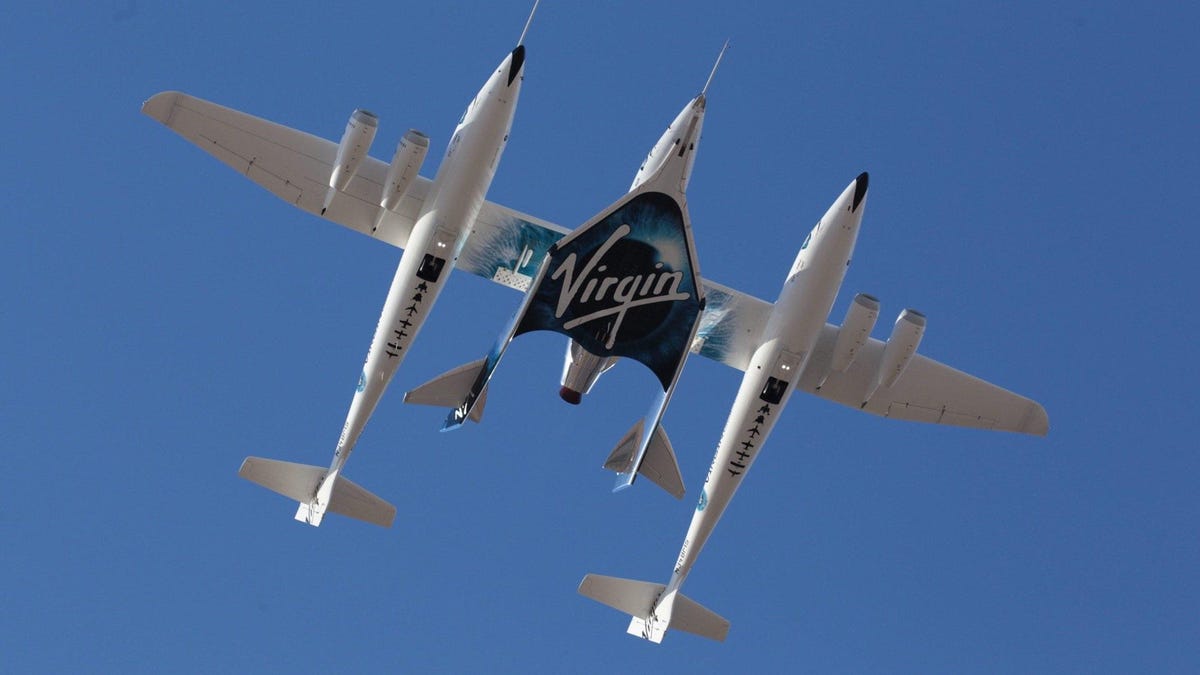Virgin Galactic completes first test flight since fatal crash
Richard Branson's space plane geared for tourists is finally off the ground and rocketing around again.

Over three and a half years since the fatal crash of Virgin Galactic's SpaceShipTwo, Richard Branson's space tourism company may finally be back on track following a successful test flight on Thursday.
The rocket-powered space plane named VMS Unity took off in California's Mojave Desert attached to Virgin's jet-powered cargo craft, WhiteKnightTwo, before reaching a high-enough altitude to separate and fire its engine.
Our pilots have ignited VSS Unity’s rocket motor for today’s planned partial duration burn. Pointing upwards and accelerating fast
— Virgin Galactic (@virgingalactic) April 5, 2018
The rocket ship accelerated past the speed of sound for just a moment before slowing down and turning around for a glide back home.
Today VSS Unity completed her first powered flight #SpaceShipTwo pic.twitter.com/Q0WDW6Z1v5
— Virgin Galactic (@virgingalactic) April 5, 2018
"Virgin Galactic back on track," tweeted founder Richard Branson following the brief flight. "Successful powered flight, Mach 1.6. Data review to come, then on to the next flight. Space feels tantalisingly close now."
The space plane has been undergoing other tests and has completed glide flights in recent months, but this is the first time it's fired up its rocket motor since the 2014 accident.
Founded in 2004, Virgin Galactic hopes to eventually offer tourists the opportunity to make suborbital flights to space for a price tag of about a quarter million dollars. However, it's almost a decade behind schedule from when it originally hoped to begin flying paying customers to space.
Meanwhile, competition has emerged from Jeff Bezos' rocket company Blue Origin. And even Elon Musk's SpaceX has discussed using its rockets to launch tourists around the moon and perhaps around the world on super-fast international flights via space.

